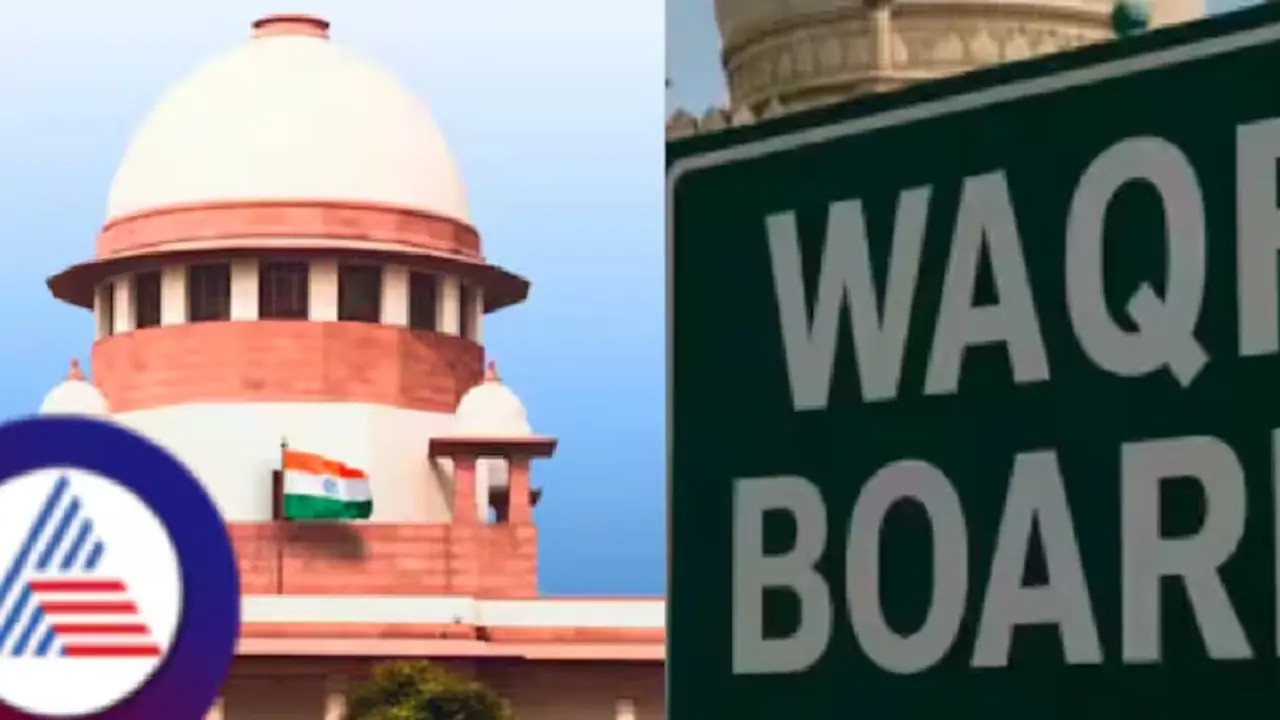The Supreme Court heard petitions challenging the Waqf (Amendment) Act. Petitioners allege it curtails Muslim autonomy and aids state interference, while the Centre and seven states defend it as transparent and constitutional.
The Supreme Court on Wednesday began hearing a series of petitions challenging the constitutional validity of the Waqf (Amendment) Act, 2025. The controversial legislation has sparked widespread political backlash and legal concerns across India.

Hearing adjourned, concern over West Bengal violence
The Supreme Court has adjourned the hearing on a clutch of petitions challenging the Waqf (Amendment) Act, 2025, with arguments now scheduled to resume on Thursday. No interim order was passed.
At the end of the day’s proceedings, Chief Justice of India Sanjiv Khanna expressed concern over the violence that has erupted in parts of West Bengal in response to the new law. “One thing that is very disturbing is the violence that is taking place. If the matter is pending here, it should not happen,” the CJI said, urging calm while the case remains under judicial scrutiny.
CJI flags ‘grave ramifications’ of waqf by user denotification
CJI Khanna also voiced concern over the potential fallout of de-recognising "waqf by user" properties, a key provision under challenge in the amended law. “When a law is passed, courts do not normally pass orders at the admission stage. But in this case, we think that if there is waqf by user and it is de-notified, then there are grave ramifications,” the CJI remarked.
He noted that existing Waqf Boards, which are currently functional and have a defined tenure, must also be factored into the legal and administrative consequences of the amendment.
CJI puts options before lawyers
The top court noted that the first question before it was whether to adjudicate the matter itself or refer it to a common High Court. The bench remarked that since the constitutional validity of the Act is already under challenge before the apex court, High Courts may not be in a position to decide on it independently. “Now the first option is for us to hear it. Or send it to a common High Court, or take pending petitions from High Courts and decide it. The issue is, when constitutional validity is pending here, then High Courts cannot decide it,” the CJI observed, indicating that the Supreme Court may centralise the matter to ensure consistency in judicial review.
Court cautions Centre on ‘waqf by user’ properties
A bench led by Chief Justice Sanjiv Khanna warned the Centre that any move to derecognise “waqf by user” properties could lead to serious complications. “If you derecognise 'waqf by user', it will create problems,” the bench remarked, highlighting the risks of disrupting long-established religious practices.
Sharp questions on inclusion of non-Muslims in Waqf Council
The court also questioned the Centre on a key provision allowing non-Muslims to be appointed to the Central Waqf Council. The bench asked whether the government would, by the same logic, allow Muslims to be appointed to Hindu religious endowment boards. The sharp query reflects the court’s focus on preserving religious autonomy within constitutional bounds.
Debate over constitutional rights and secularism
Chief Justice Khanna, along with Justices Sanjay Kumar and K V Viswanathan, is hearing over 70 petitions that argue the Act infringes upon Article 26 of the Constitution, which guarantees freedom to manage religious affairs. Senior advocate Kapil Sibal, representing the petitioners, contended that the Act intervenes in core religious practices and undermines constitutional guarantees of faith and property rights.
Court frames key procedural and constitutional issues
At the outset, the bench framed two preliminary questions for both sides:
Should the Supreme Court entertain the matter directly or send it to the High Court?
What exactly are the petitioners urging, and what issues are central to their arguments?
CJI Khanna noted that the second question could influence the first, depending on the nature of the constitutional claims raised.
Contentious provisions under challenge
Petitioners argue that the amended Act:
- Abolishes elections to state Waqf Boards
- Allows appointment of non-Muslims to Waqf bodies
- Dilutes protections for undocumented waqf properties, including the doctrine of "waqf by user"
- Restricts Scheduled Tribes from creating waqfs
They contend that the law undermines the autonomy of the Muslim community and facilitates state control over religious endowments.
Parliamentary passage and legal response
The Waqf (Amendment) Act, 2025 received presidential assent on April 5 following a heated passage through Parliament. It cleared the Lok Sabha with 288 votes in favour and 232 against, and passed the Rajya Sabha 128–95. The Centre has filed a caveat in the Supreme Court, requesting to be heard before any interim relief is granted.
Petitions from across the political and religious spectrum
A total of 73 petitions have been filed, including by political leaders such as Asaduddin Owaisi, Mahua Moitra, and Amanatullah Khan, as well as religious organisations like the All India Muslim Personal Law Board and Jamiat Ulama-i-Hind. Notably, two Hindu petitioners—advocate Hari Shankar Jain and Parul Khera—have challenged the Act, arguing that it facilitates illegal occupation of land under the guise of waqf.
States support the Centre’s stand
Seven state governments have backed the law in court, calling it essential for ensuring transparency and accountability in the administration of waqf properties. They argue that the amendments are constitutionally sound and intended to curb misuse.


